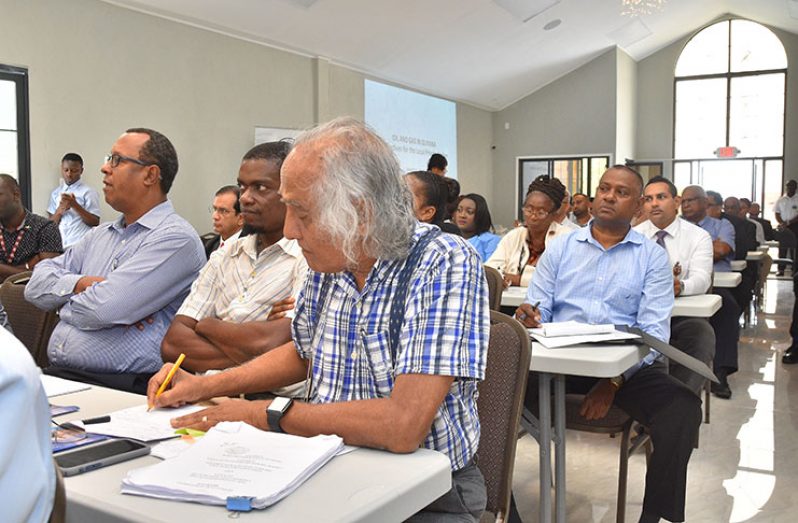— Exxon commercial manager
ExxonMobil’s Commercial Manager Peter Dillon said stability clauses are very common features in the oil-and-gas industry, as he dismissed suggestions that it is a means to strangle Guyana’s Parliament and future governments.
Speaking at a Private Sector Commission (PSC) oil-and-gas forum at Duke Lodge, Kingston, Georgetown, on Tuesday, Dillon said in countries where there is no clause, such as in Ghana, an investor has to think twice about investing.
He said Exxon found the clause in the 2012 agreement it signed with Guyana and noted that it looked very normal.
“We were happy to agree to it,” he said.
In most jurisdictions, parties sign onto stabilisation clauses in contracts. The clause is commonly inserted in contracts between investors and host nations to protect investors from future changes in the law that affect the economics of a project.
ExxonMobil’s Communications and Government Affairs Manager Kimberly Brasington, who also spoke at the forum, said the oil giant is not opposed to negotiation or persons “standing up for what they believe in” regarding the oil contract the company signed with Guyana .
President David Granger stated last month that there is no immediate intention by government to review the contract between the two parties.
Brasington said the sanctity of a contract is “very important”, especially with a new ministry and in a country that is new to the industry.
She told the forum that there are a lot of eyes on Guyana, Guyana is a stable environment to do business and the company wants to be here for many years.
Asked whether the country received a fair deal from the signing of the contract, Brasington said both parties had something to gain.
She said dating back to 1999, the oil company had secured more time to explore the seas offshore Guyana and to its gain, the country was able to procure more from the contract when it was negotiated in 2016.
“Both parties got something out of it,” she said, noting that ExxonMobil could have stayed with the 1999 agreement, since it was valid.




.jpg)










